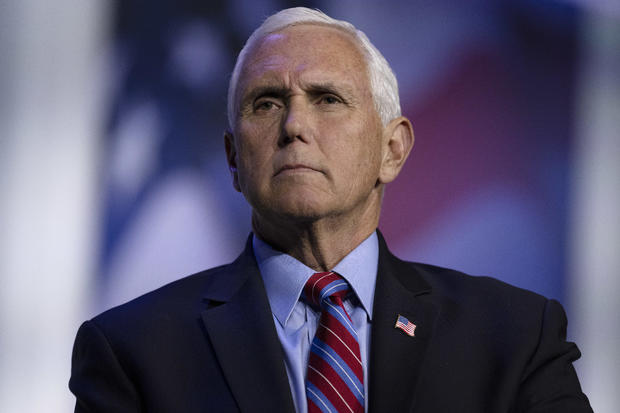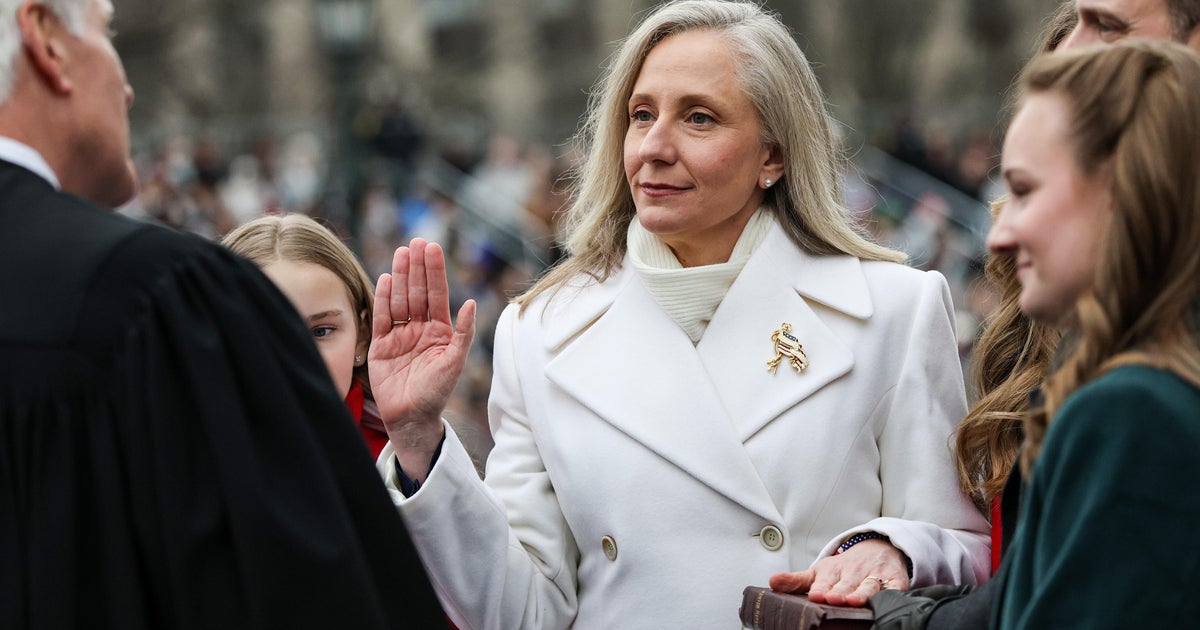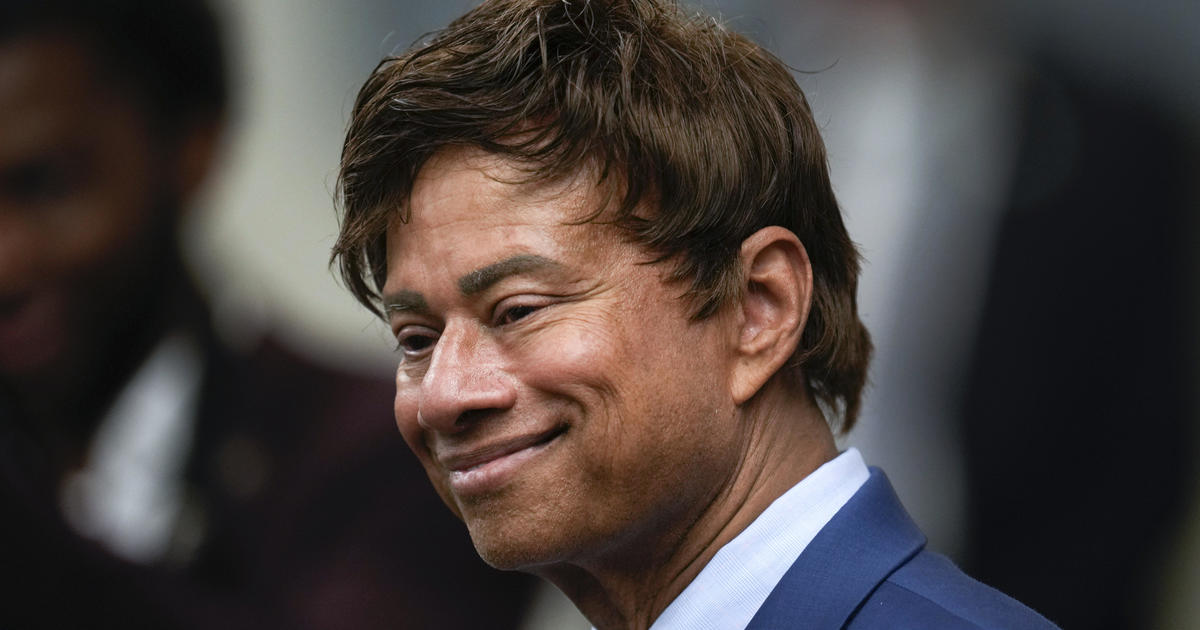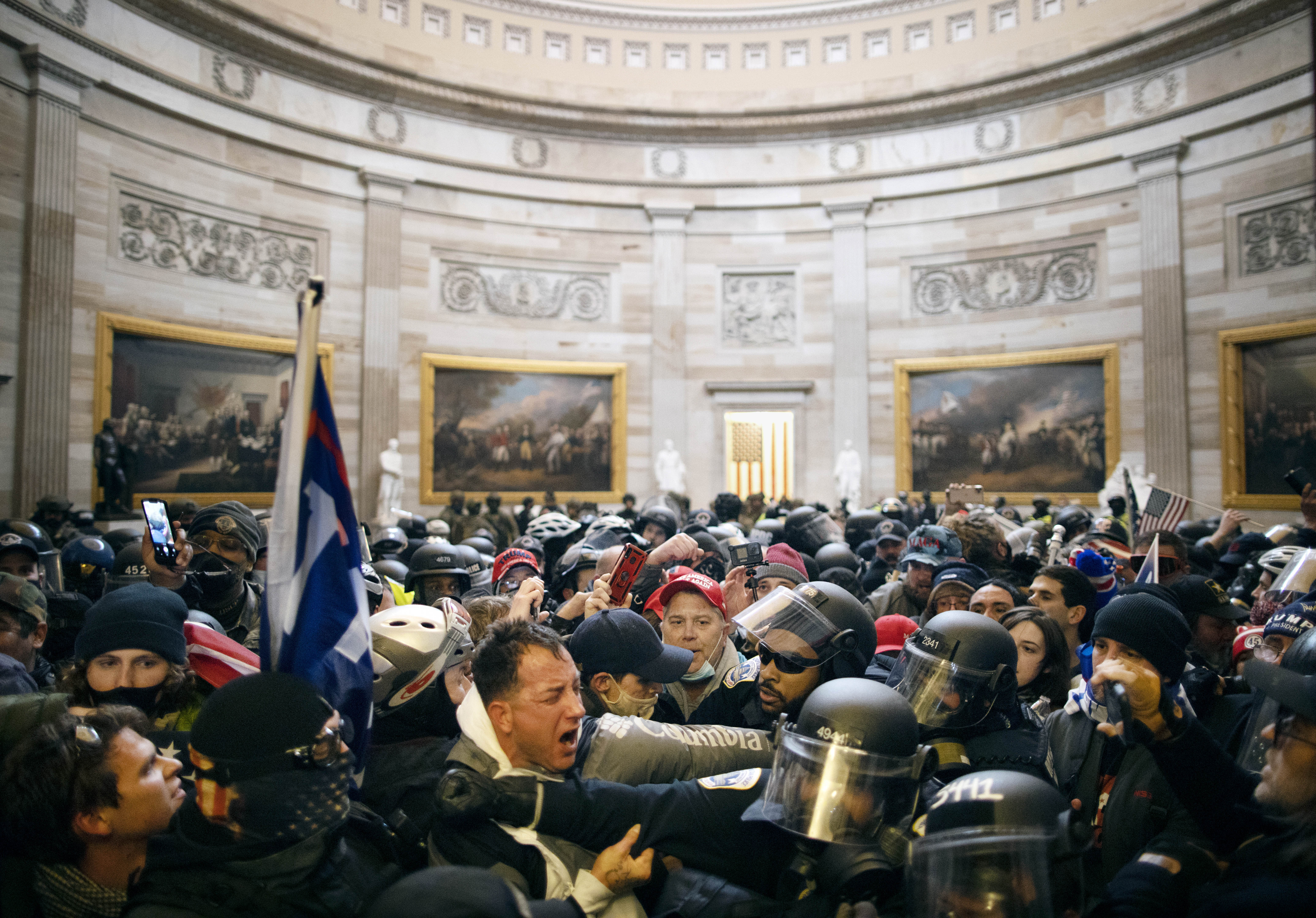National Archives says it will turn over Mike Pence's records to January 6 panel
Washington — The National Archives and Records Administration will release records from Vice President Mike Pence to the House panel investigating the January 6 assault on the U.S. Capitol, despite efforts by former President Donald Trump to shield their release.
David Ferriero, archivist of the United States, told Trump in a letter Tuesday that he will give the documents to House investigators "after consultation with the counsel to the president and the assistant attorney general for the Office of Legal Counsel, and as instructed by President Biden."
The Archives will deliver the records to the select committee on March 3 "unless prohibited by court order," Ferriero wrote.
The records at issue stem from two separate requests the select committee made to Archives in March and August. Trump notified the Archives in a January letter he would be asserting executive privilege over a tranche of documents, which contain vice presidential records.
But Mr. Biden rejected Trump's attempt to block the release of the records, according to a February 1 letter from White House counsel Dana Remus to the Archives, as the president determined "an assertion of such a privilege is not justified and is not in the best interests of the United States."
The records, she continued, should be turned over to the select committee in 30 days barring a court order stopping their release.
Remus said many of the records Trump asserted privilege over "were communications concerning the former vice president's responsibilities as president of the Senate in certifying the vote of presidential electors on January 6, 2021." Some of the records also involved litigation "in which certain parties were represented by the Department of Justice," she said.
Trump and his allies sought to pressure Pence to reverse the results of the 2020 presidential election in the run-up to the January 6 joint session of Congress, which was ultimately interrupted by the breach of the Capitol building by a mob of the former president's supporters.
While Trump encouraged the vice president to reject electoral votes, Pence rebuffed the former president's pressure campaign, writing in a lengthy letter the morning of January 6 he could not claim "unilateral authority to determine which electoral votes should be counted and which should not."
More than a year later, Trump has continued to allege Pence had the power to toss out state electoral votes and indicated in a statement Sunday that he wanted the vice president to overturn the results of the 2020 election.
Trump on Tuesday also suggested the January 6 select committee investigate "why Mike Pence did not send back the votes for recertification or approval."
In the course of their examination into the events surrounding the January 6 assault on the Capitol, House investigators have interviewed more than 400 witnesses and obtained over 50,000 documents, according to Congressman Jamie Raskin of Maryland, who sits on the committee.
Greg Jacob, Pence's chief counsel, met with the committee Tuesday, while Marc Short, Pence's former chief of staff, appeared before the panel last week. Members also plan to ask the former vice president to meet with them voluntarily.
Investigators, meanwhile, continue to gain access to documents from the Trump White House. Last month, they received more than 700 pages of records that were at the center of a legal battle mounted by Trump that was ultimately unsuccessful.
Congressman Pete Aguilar of California, a member of the select committee, told reporters this week that in addition to the 700-page batch from the Archives, the agency continues to produce more records.
The committee has issued dozens of subpoenas, including ones to Trump's allies, former White House officials, campaign aides and individuals involved in the planning of the rally outside the White House before the Capitol building came under siege. Two top Trump allies, Steve Bannon and former White House chief of staff Mark Meadows, have been held in contempt of Congress for refusing to comply with subpoenas, and the Justice Department has charged Bannon. Both said they are following instructions from Trump, who has claimed executive privilege.
House Speaker Nancy Pelosi created the House select committee last year earlier this year to investigate the January 6 attack, when thousands of Trump supporters descended on the Capitol as Congress counted the electoral votes, a largely ceremonial final step affirming Mr. Biden's victory. Lawmakers were sent fleeing amid the riot, which led to the deaths of five people and the arrests of hundreds more. Trump, who encouraged his supporters to "walk over" to the Capitol during the rally at the Ellipse before the electoral vote count, was impeached by the House one week later for inciting the riot but was later acquitted by the Senate.






